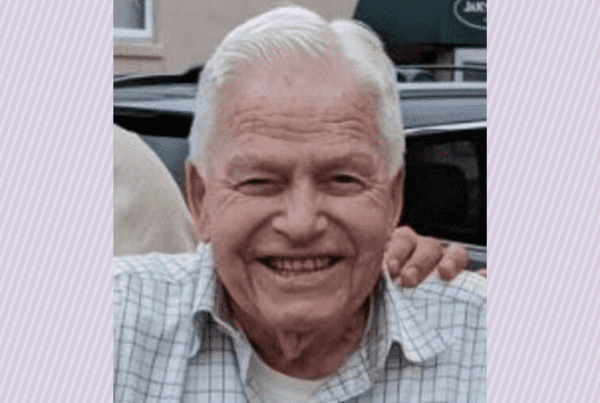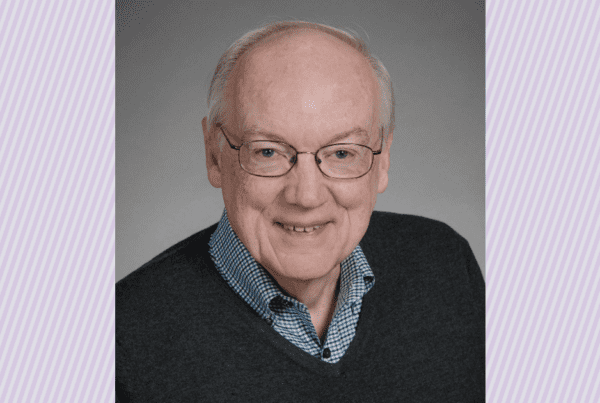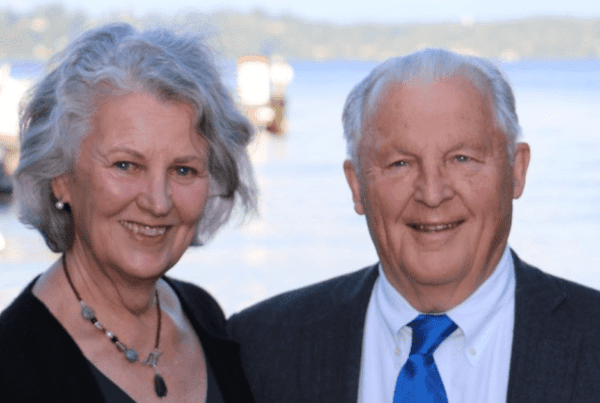Deborah Ann Nickerson, a pioneer in human genomics and one of the most frequently cited scientists of the past decade, died on Dec. 24, 2021. She was 67 years old. The cause of death was aggressive abdominal cancer, diagnosed less than a week before her death.
“For more than two decades, Debbie Nickerson has been a true leader in the application of genomic sequencing to precision medicine,” wrote Francis Collins, former director of the National Institutes of Health (NIH). “Always pushing the existing boundaries with an infectious mix of creativity, vision, impatience and a wicked sense of humor, Debbie exhorted herself and everyone around her to do more than they thought they could. Her imprint on genomic medicine is profound, and she will be sorely missed.”
Documenting Human Variation
Nickerson was a major contributor to human genomics in the years following the Human Genome Project, as investigators applied the results of that project to medical research. The Human Genome Project provided the 3 billion base-pairs of DNA sequence for a single reference human genome. In order to be useful for medical research, this single human genome needed to be accompanied by DNA sequences of thousands of people, reflecting the vast amount of natural human variation across individuals and populations. From the sequences of thousands of healthy people, databases of worldwide variation could then be created to serve as references against which sequences of genes potentially responsible for disease could be compared. The challenges of identifying and cataloguing human genetic variation were both technological and logistical and ultimately involved hundreds of scientists in laboratories on six continents.
Nickerson was one of the first to recognize the importance to this effort of sequence-based data from people from diverse ancestries. In the immediate aftermath of the Human Genome Project, genome sequencing was still too expensive to undertake for large numbers of people. Given this limitation, even before the first human genome sequence was complete, Nickerson developed methods to rapidly assay common variants for the International HapMap Project. Then, as costs of DNA sequencing dropped dramatically in the early 2000s, Nickerson embraced the new technology. She created the first large deep-sequence-based catalog of human variation by sequencing the genes of more than 6,500 volunteers, then making the fully anonymized catalog of their variants openly available on the Exome Variant Server. Others extended this approach and databases of human genomic variation are now used worldwide to discover genes responsible for human disease and to enable accurate genetic diagnoses of patients who undergo genetic testing.
Genomics and Precision Medicine
With her colleagues, Nickerson applied DNA sequencing to discover genes responsible for human conditions ranging from cardiovascular disease to autism to severe pediatric disorders. She contributed to the identification of the gene underlying Miller syndrome, a landmark discovery using then-new technologies in gene sequencing. She illuminated differences in patients’ responses to medications by discovering genetic variation in metabolism of the blood thinner Coumadin. She contributed to the identification of newly arising de novo genomic deletions and duplications leading to autism.
National contributions
At the time of her death, Nickerson directed one of five centers established by the NIH to investigate genetic causes of diseases caused by severely damaging aberrations in a single gene. Her lab is also a principal contributor to the NIH All of Us Research Program, which will ultimately integrate genome sequencing of more than 1 million individuals with information about their lifestyles and health. In the context of the All of Us Program, her center has led efforts to return results of DNA sequencing to participants in ways that will improve their health. Her work is reflected in more than 350 original research publications, many of which transformed our views of how human DNA sequence variation can affect human health. Based on the number of published references to her work, she was named by Web of Science one of the most highly cited scientists of the past decade.
Nickerson advocated unstintingly for women in science. Early in her career, as often the only woman in a room of male colleagues, she spoke up for better representation of women. She fought for a culture that would not require women to sacrifice their personal lives in order to pursue careers in science. Her support was local and national, encouraging young women not to let themselves be undervalued. In parallel, she advanced the training of young scientists from underrepresented minority backgrounds, and felt that human genetics, especially, should be at the forefront in training a next generation of scientists from a wide variety of backgrounds. Her former students and postdocs are now a powerful force in human genetics and genomics.
Remembrance
Deborah Nickerson was born in Mineola, New York, on Long Island. Her parents, William J. and Josephine Nickerson, owned a garden center where she often worked as a child. She received her BA from Adelphi College and her PhD from the University of Tennessee. After a post-doctoral fellowship at the University of Kentucky, she joined the faculty at the University of South Florida. Her interest in the intersection of technology and immunology drew her in the late 1980s to the laboratory of Leroy Hood at Cal Tech. She moved with Hood to the University of Washington in 1992 and became a founding member of a new department of genome sciences. She died at home with her family. She is survived by her brother Bill Nickerson and his wife Beverley, her niece, Michele Pittoni and Michele’s children, Charles and Charlotte.
In lieu of flowers, the family suggests donations to the Endowed Research Fund for Genome Sciences of the University of Washington to support graduate student travel, particularly for graduate students with fewer resources. Condolences may be sent to Bill Nickerson, 37 Merritt St., West Islip, NY 11795.
An online memory board has been created to view or to add your memories or photos of Dr. Nickerson.
This remembrance was co-written by Bob Waterston, Mary-Claire King, Evan Eichler, Gail Jarvik, Jay Shendure and Colleen Davis.
Editor’s note: Address to send condolences was updated on Jan. 5, 2022.


